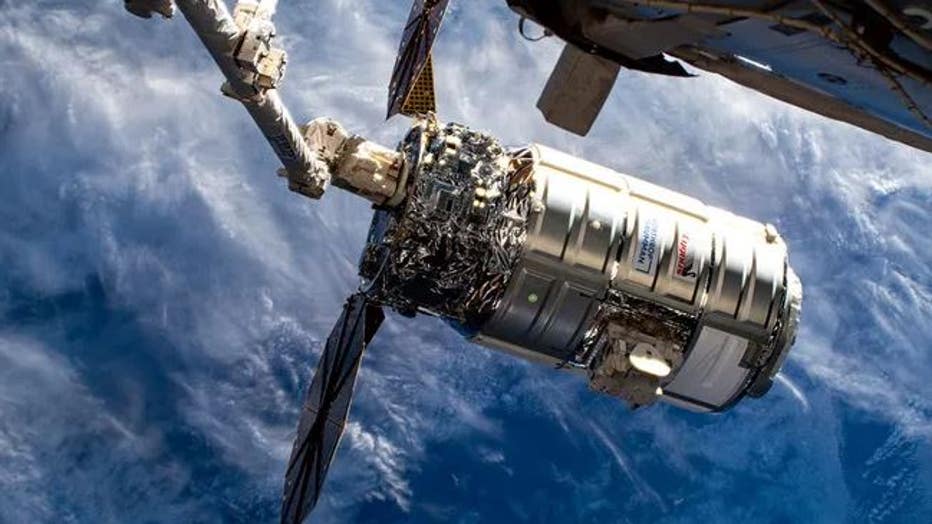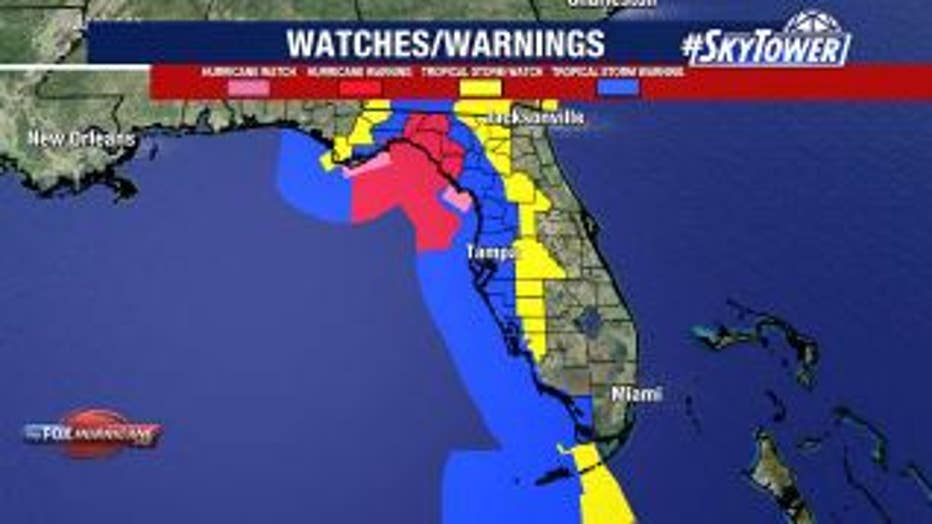Launch of supplies to International Space Station delayed as Debby eyes Florida
Tropical Storm Debby takes aim at Florida
FOX 13 Meteorologists are keeping an eye on Tropical Storm Debby, which is expected to become at least a Category 1 hurricane before making landfall in the Big Bend Area. The Bay Area will begin feeling the outer rain bands of the storm on Sunday morning with the areas west of I-75 seeing the most impact. Tropical Storm Debby will bring heavy downpours to the area throughout the day on Sunday and into Monday morning. The storm is expected to stall out after making landfall, bringing heavy rain to the southeastern states throughout the week.
CAPE CANAVERAL, Fla. - A Northrop Grumman spacecraft is scheduled to launch from Florida on Sunday, sending supplies, groceries and science to the astronauts living on the International Space Station.
The launch attempt will be the second of the weekend after Saturday's countdown was halted due to thunderstorms that were too close to the space center.
The Cygnus spacecraft, packed with nearly 8,200 pounds of cargo, will launch on a SpaceX Falcon 9 rocket at 11:02 a.m. ET from Launch Complex 40 at Cape Canaveral Space Force Station.
READ: Emergency shelters open in Tampa Bay Area as Tropical Storm Debby heads for Florida
This will be Northrop Grumman's second ISS resupply mission for NASA this year and the second to launch on a SpaceX Falcon 9 rocket. The Cygnus cargo supply vehicle was previously launched on Northrop Grumman's Antares rocket, but due to the ongoing Russian invasion in Ukraine, the company has been unable to source its Ukrainian and Russian hardware for the vehicle.

Northrop Grumman's Cygnus spacecraft is attached to the Canadarm2 robotic arm about to be released into Earth orbit ending a five-and-a-half month cargo mission berthed to the International Space Station's Unity module. (NASA)
Northrop announced in 2023 that it is working with Firefly Aerospace to create a new version of the Antares rocket using American-made engines and other hardware.
Some of the science on this mission includes biomedical research studying liver tissue and two university-designed CubeSats that will deploy from the ISS from Iowa and Arizona.
READ: St. Petersburg officials and residents preparing for potential tropical storm conditions
The launch weather could make it problematic for SpaceX to get the Falcon 9 off the launchpad. Forecasters with the National Hurricane Center continue to monitor Debby in the Gulf of Mexico that will affect Florida.
Daily sea breeze-driven thunderstorms and showers across Florida are likely, regardless of any tropical development.

After the launch, NASA astronaut Matthew Dominick will use the station's robotic arm to capture Cygnus, with NASA astronaut Jeanette Epps as backup.
Cygnus will remain at the ISS until early next year before it departs with trash from the station and burns up in Earth’s atmosphere.
Read more at FOXWeather.com.

